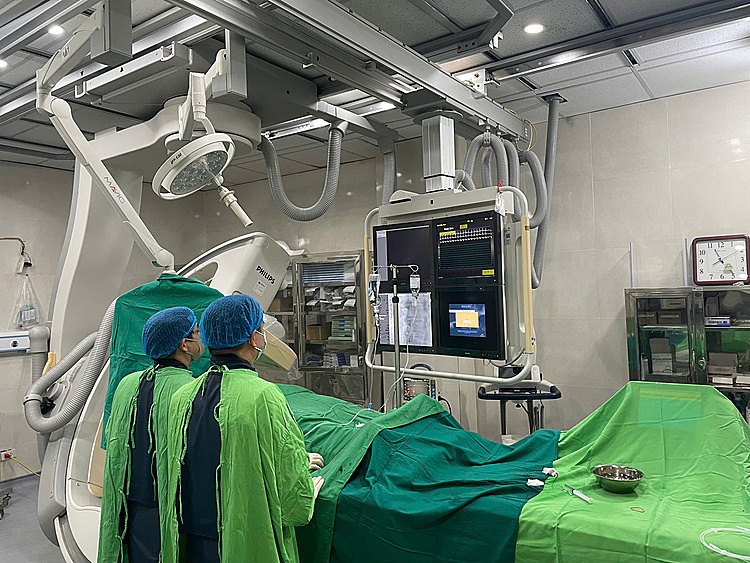On 23/8, Lang Son General Hospital reported that the man was found by passersby and brought to the hospital. He had been healthy with no pre-existing conditions or warning signs.
An electrocardiogram (ECG) revealed an acute myocardial infarction (heart attack). The medical team performed an emergency coronary angioplasty. During the procedure, the patient went into cardiac arrest 5 times, each lasting 1 to 2 minutes, experiencing ventricular fibrillation and facing a very high risk of death. Doctors and technicians alternated performing chest compressions, using a bag valve mask, and administering external defibrillation, simultaneously maintaining his heartbeat and placing a stent to restore blood flow to the coronary artery.
After 2 hours, the procedure was successful. However, the patient remained in critical condition with severe arrhythmia and signs of cerebral edema due to repeated circulatory arrest. Doctors initiated treatment for sedation, cerebral edema, arrhythmia, and anticoagulation. After 7 days of intensive care, the patient regained consciousness. His arrhythmia stabilized, with no signs of brain damage or edema, and he was discharged.
 |
Doctors treating the patient. Photo: Hospital provided |
An acute myocardial infarction is the complete blockage of blood supply to the heart muscle, leading to tissue death. Various factors can cause this. Patients are at high risk of death in the initial hours before hospitalization due to arrhythmia complications.
If cardiac arrest occurs outside a hospital, the mortality rate exceeds 90%. With prompt hospitalization and treatment, the mortality rate drops to 6-10%. However, when heart muscle is damaged due to ischemia, complications such as acute pulmonary edema, cardiogenic shock, arrhythmia, kidney failure, and cerebral ischemia can occur. Over 50% of patients experience a triggering event before a heart attack, such as strenuous exercise, psychological stress, surgery, or a serious medical condition.
Doctors recommend controlling risk factors and maintaining a healthy weight. Limit alcohol consumption, quit smoking, eat plenty of fruits, vegetables, and whole grains, and avoid fast food, processed fats, and fried foods. Younger individuals should not assume that heart attacks only affect older people and ignore potential symptoms, leading to serious complications. Seek immediate medical attention if you experience any unusual symptoms, such as chest pain, shortness of breath, or irregular heartbeat.
Thuy Quynh












